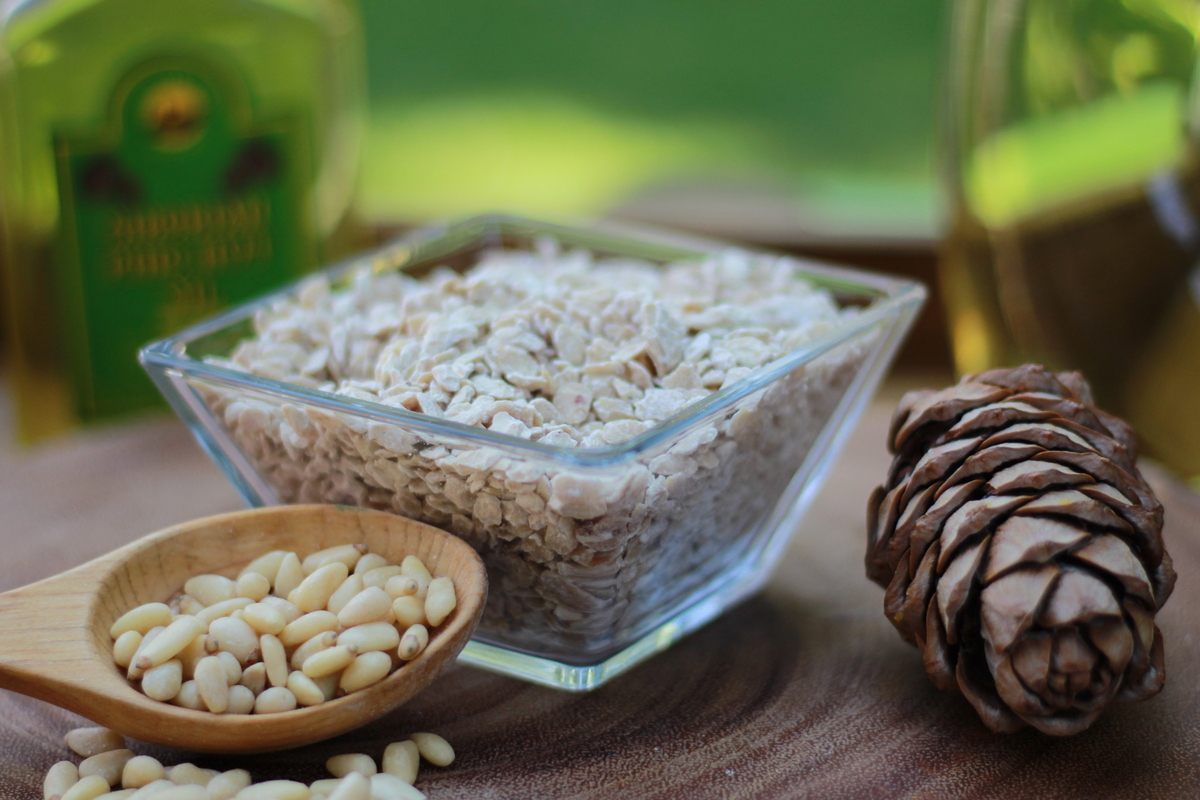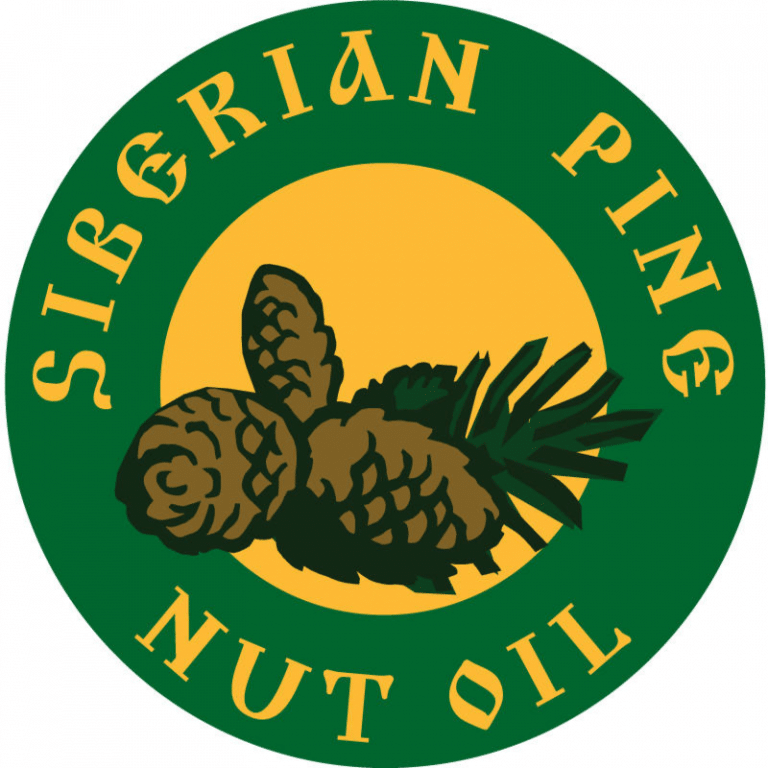Pine nut flakes and pine nut oil in the diet for hypertension

Arterial hypertension is a persistent (permanent) increase in blood pressure. Today, about 20 to 30% of the adult population suffers from this problem. Modern medicine uses a fairly large arsenal of various drugs specifically designed to return blood pressure to normal values. However, the most important factor in recovery is also a change in habits and lifestyle: giving up bad habits, increasing physical activity, and above all, a balanced diet. Without proper nutrition, arterial hypertension can take a crisis or malignant course. The main recommendations for the nutrition of patients with arterial hypertension are as follows:
- Reducing salt intake;
- Reducing the consumption of fatty foods;
- Сonsumption of nutrients that regulate fat metabolism;
- Consumption of a large amount of dietary fiber;
- Refusal of animal fats in favor of vegetable;
- Increasing intake of magnesium and potassium.
Pine products, including pine nut flakes and pine nut oil, are optimal for the nutrition of patients with arterial hypertension. They are a source of healthy vegetable fats, promote healthy fat metabolism, lower cholesterol levels, and strengthen the heart muscle.
Vegetable fats instead of animal fats
Animal fats are rich in saturated fatty acids that increase blood cholesterol levels. Most often, hypertension occurs precisely against the background of blockage of blood vessels by cholesterol plaques.
Vegetable fats, unlike animal fats, contain a significant amount of polyunsaturated fatty acids that reduce the concentration of cholesterol and pressure. For example, more than 70 randomized controlled trials have shown that omega-3s reduce systolic blood pressure and diastolic blood pressure, according to The American Journal of Hypertension. [1] Pine nut flakes and pine nut oil are a source of unsaturated fatty acids.
Dietary fiber lowers cholesterol
Another indispensable nutrient for lowering the level of „bad“ cholesterol is dietary fiber, contained in pine nut flakes. Dietary fiber absorbs water in the intestines, forming a jelly-like substance that can bind to cholesterol and bile acids, helping to remove their excess from the body. Dietary fiber also regulates blood glucose levels.
This nutrient has another important effect: it increases the feeling of satiety and reduces appetite. That’s why dietary fiber helps not to overeat, and it is overweight that is one of the important factors in the development of hypertension.
Fat metabolism
Pine nut oil and pine nut flakes are a source of methionine, an amino acid that regulates fat metabolism. It has a fat-soluble effect and reduces the deposition of fat in the liver, promotes faster processing of incoming fats and their removal from the body. Lipotropic vitamins also include B vitamins and vitamin P (bioflavonoids) that are rich in pine products.
Strengthening the heart muscle
Patients with arterial hypertension are advised to increase the dose of magnesium and potassium in the diet. These two minerals are found in pine nut oil and pine nut flakes. They strengthen the heart muscle and increase its endurance, which is extremely important for the prevention of diseases of the cardiovascular system.
In addition, magnesium directly affects blood pressure, reducing it. This is evidenced by the results of a meta-analysis, including 34 randomized, double-blind, placebo-controlled studies.[2]
Add pine products to your diet: replace muesli with pine nut flakes, and any oils of animal origin with pine nut oil. This will help you control your blood pressure, lower your „bad“ cholesterol, and prevent any complications.
REFERENCES
[1] Miller PE, Van Elswyk M, Alexander DD. Long-chain omega-3 fatty acids eicosapentaenoic acid and docosahexaenoic acid and blood pressure: a meta-analysis of randomized controlled trials
[2] Zhang X, Li Y, Del Gobbo LC, Rosanoff A, Wang J, Zhang W, Song Y. Effects of Magnesium Supplementation on Blood Pressure: A Meta-Analysis of Randomized Double-Blind Placebo-Controlled Trials.
These articles come directly from researchers and are passed on to everybody. siberianpinenutoil.org assumes no liability for any content in these articles. For Educational purposes only. This information has not been evaluated by the Food and Drug Administration. This information is not intended to diagnose, treat, cure, or prevent any disease.

